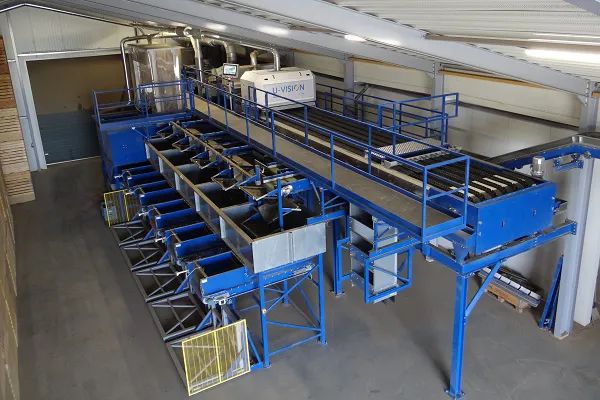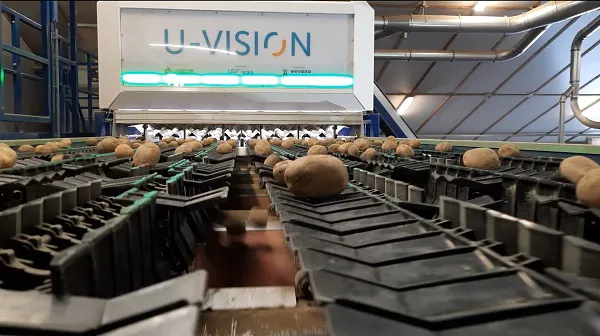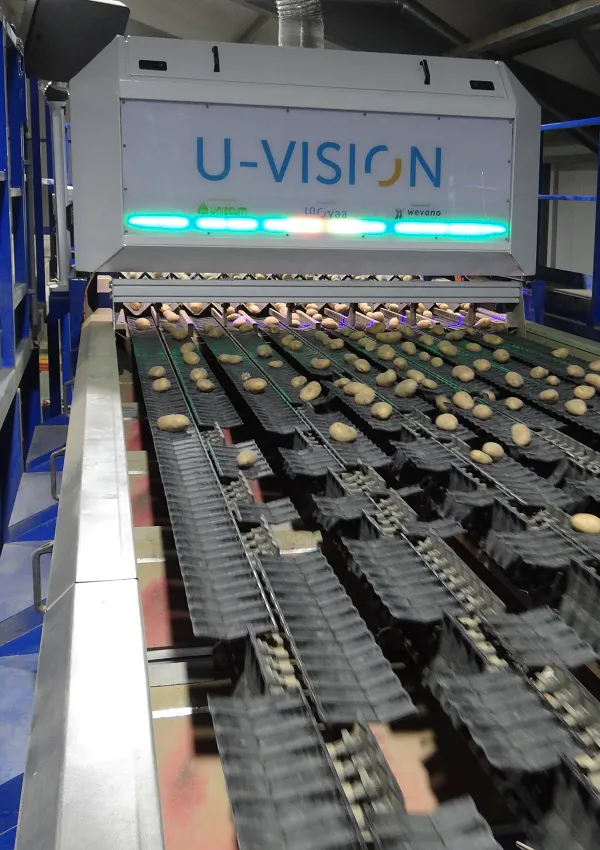Maatschap Bouthoorn has been seeking a suitable potato grader for a while. For a long time, this Dutch seed potato supplier did not consider that these machines had sufficiently proven themselves. Until they discovered the U-Vision. "Its custom sorting and quality combination are what did it for us," begins Bas Bouthoorn.

In 2020, Bouthoorn got an entirely new processing line, including the U-Vision optical grading machine. It has been in use for two and a half years now, and Bas is well-pleased with this new sorting technology. "We supply a lot of seed potatoes for early export. Grading by size is essential, as is sorting out damages and defects. The heavy soil in our area means plenty of clods sticking to the potatoes. It's quite hard to mechanically sort this unwashed product. Looking ahead, we wanted a suitable optical grader. These techniques are often only focused on size, not so much on quality, and we hadn't come across a machine that does both well."
The U-Vision removes clots and pebbles from the potatoes early in the process, resulting in less damage further down the line. Bas says thanks to cameras, the machine checks the potatoes' quality thoroughly. "Though, these readings are still evolving and improving every year. It's quite difficult to pick up on, say, Scab. But that's constantly improving due to the masses of data being collected."

"We consider the U-Vision's compact construction and open design a major advantage too. It's not completely sealed, which isn't necessary either because it doesn't use any compressed air blasting technology. You can, thus, clearly see the product and what's happening. The U-Vision processes an average of 10 tons of gross product per hour and keeps going during breaks. That improves efficiency considerably," Bas explains.
Consistent and accurate
The Dutch company Inovaa developed the U-Vision optical grader which was built in partnership with Wevano in the Netherlands and the South African Uniekum. "Our sorting techniques help potato producers improve their products' quality," says Bas Pomstra, who founded Inovaa along with Marnix Hamstra. Their U-Vision machines now run at several Dutch potato companies, and there is growing overseas interest.
The U-Vision has camera technology, which uses various images to rate each potato individually. That makes accurate sorting possible. This machine is unique in that it assesses every potato for both size and quality. "We focus primarily on grading unwashed products, and for seed potato suppliers, good size sorting is vital. With optical sorting, that can be done to within half a millimeter, allowing for far better returns from batches. That's especially true for batches with many inferior potatoes; then conventional sorting is almost impossible. The machine replaces human hands and is not only faster but also consistently more accurate."
Product friendliness
The cameras also rate each potato's damages and defects like deformation, growth cracks, wireworm damage, and green or rotten spots. Inovaa’s Bas mentions its distinctive output system too. "A product carrier brings each potato to the correct exit, which minimizes damage and drop heights. The product carriers are designed so that the potato's size isn't a limiting factor. More are deployed for larger potatoes, fewer for smaller ones. The system doesn't use compressed air, so energy consumption is low, and it generates very little dust," the company’s co-founder explains.

Regarding the development of potato quality assessment, Inovaa's Bas Pomstra says: "We dearly need growers to get the best results. We know about machinery and camera and management technology; they know about potatoes. So many factors affect this product's quality. Just think of all the different varieties, soil types, and climatic conditions, as well as the various sales markets and their corresponding requirements. By working together, sharing knowledge, and continuously responding to developments, we can arrive at an optimal sorting solution," he concludes. (CH)
Bas Bouthoorn
Maatschap Bouthoorn
bas_bouthoorn@hotmail.com
Bas Pomstra
bas@inovaa.nl  Inovaa
Inovaa
www.inovaa.nl
info@inovaa.nl
T: +31 (0) 794525
